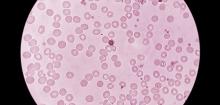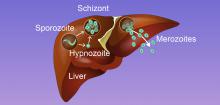Last Saturday we organized a familyday. Almost 200 family members and friends of colleagues took a look behind the scenes at BPRC.
During a morning and afternoon session we guided visitors in small groups around and showed them what we do at BPRC, how we do it and why.
A pill from a 3D printer helps to investigate the gut flora
16 Aug 2019 | Back to News, Publications and Annual ReportsIn tv commercials they call it gut flora but scientists rather speak of the microbiome. In both cases they talk about the bacteria that resides in our intestines. We used a newly designed pill which was created with a 3D printer to determine the microbiome from monkeys and pigs.
Alternatives to animal testing: an important breakthrough in malaria research
13 Aug 2019 | Back to News, Publications and Annual ReportsResearch into the most commonly occurring and difficult to treat strain of malaria, vivax malaria, is possible using the human form of the parasite only under extremely limited circumstances. While a closely related primate malaria parasite has thus far provided a solution to this problem, that system does require the use of primates. Hopefully, this is about to change.
Thanks to a global collaborative partnership which includes BPRC researchers, an effective system for culturing the blood-borne non-human primate malaria parasite has now been developed.

HIV no longer has to be a death sentence. Thanks to research in monkeys, we have drugs that inhibit the virus and prevent the development of AIDS.
Still, it remains important to prevent the spread of HIV within high-risk groups. That is why PrEP is now provided almost free of charge through the municipal health service.
BPRC reveals results of fifteen-year study
The best time to introduce new breeding males into a group of rhesus macaques is when the males are at the peak of their strength. Such introductions have the greatest chance of success in groups with many females, from a maximum of three different families. These are only two of the conclusions from a fifteen-year study conducted by behavioural experts at BPRC.
Genes of leukaemia virus less essential than assumed
19 Jul 2019 | Back to News, Publications and Annual ReportsWhen you’re ill, you go to see a doctor. Sometimes the doctor needs to send your blood to a specialist laboratory. If you’re a sick monkey in a European zoo, then there’s a strong chance that the vet will send your blood to BPRC for analysis.
Human vaccine against Rift Valley fever virus urgently needed
19 Jul 2019 | Back to News, Publications and Annual ReportsThe Rift Valley fever virus (RVFV), transmitted by mosquitos, is relatively unknown in Europe but it can still pose a serious danger to both humans and farm animals on our continent. The development of better and safer vaccines is urgently required to prevent outbreaks.
Other primates are a lot like us, including where their weight is concerned. One individual tends to be plump while the other remains slender. How does this work with primates? And what can we at BPRC do to reduce the incidence of overweight in the colony? These are the questions we are attempting to answer during a study of overweight among the macaques living at BPRC.
New generation of HIV vaccines shows promising results in rhesus macaques
06 Jun 2019 | Back to News, Publications and Annual ReportsPrevention is better than cure, certainly where HIV and AIDS are concerned. After all, once the HIV virus enters the body, it will remain there forever. Not even the constantly improving medication for curbing the virus can prevent this. What effective medication can do is prevent AIDS from developing and ensure that the patient is no longer able to pass on the virus. However, successful treatment requires intensive medical care.
Together with researchers from the US, BPRC has made an important discovery in the quest to find new ways of treating malaria. They've found a protein that is key to the growth of malaria parasites, offering new possibilities for developing tests for drug research.











